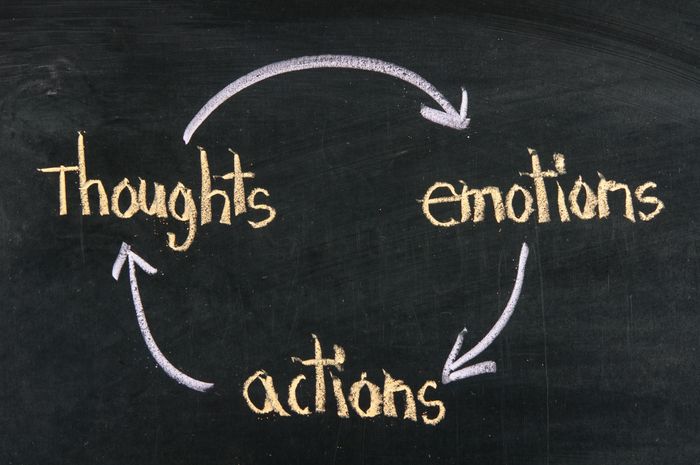A Letter
Take a moment to read this letter:
To my family . . .
As I sit and write this letter, I am in the deepest despair of my life. For the past two years, I have driven to the bridge of the river and contemplated jumping. And sat with the loaded gun many times. Today, as I sit in this chair afraid to go outside alone, knowing that I have done things that are unforgivable, I know it is time to go. I am sorry for the things I have done that have destroyed our future.
Please know that I have called, and the two-year exemption on suicide for my life insurance policy has passed, so I am fully covered. Honey, you and the kids will be completely taken care of financially, and you can be free to find the man that you desire and a much better father for our children. I will leave the house to do this so it won’t cause so much trauma.
I hope that you and the kids can one day find the place in your heart to forgive me. Please pray for my soul, for it may be lost forever.
Your Response
Here’s a question: What are you thinking right now? What was going through your mind as you read that letter?
Here are some thoughts you may have had:
- That poor wife…
- Those poor children…
- That poor man…
- That selfish man…
- I’ve had that feeling before…
- I’ve had this happen in my family…
- Why would Ford share a letter like that in a blog about leadership?
- Is this Ford’s letter?
What you were thinking caused some feelings to arise in you. You may have felt compassion, sadness, empathy, emptiness, anger, or some other feelings. Those feelings were a result of what you were thinking.
Why Read a Letter Like This
Why did I want you to read that letter as part of a leadership blog?
There are two reasons. First, I shared this letter because the rate of suicide around the world is growing at an alarming rate. In the trauma of this unexpected and traumatic pandemic we are all experiencing, people who have been closed off in their houses, shut off from their normal activities, shut off from people, and feeling alone are suffering. And those who are struggling with thoughts of suicide feel very alone and ashamed. And when something has a stigma attached to it like suicide, we avoid talking about it. In addition to suicidal thoughts, other problems—such as cutting, sexual abuse, eating disorders, and others—are systemic in nature and cause millions of people to feel isolated and ashamed.
Such ways of thinking will continue to grow unless we, as transformational leaders, step up and say, “Enough is enough.” Those of us who’ve experienced some of these stigmatized issues must take courage and speak up. People need to know they’re not alone and that they can talk about it. The good news is that some people are starting to talk about these painful issues rather than remaining silent amid their hurt.
The second reason I shared the letter above is to help you gain a better understanding of how our brains work. I wanted you to take an inventory of what you were thinking as you read that letter and recognize the feelings that were generated.
In the moment when one of our senses becomes activated—whether through seeing, tasting, smelling, hearing, or touching—a thought occurs. From that thought, a feeling is generated. And from that feeling, an action, reaction, or behavior is chosen.
But if you change the thought, you can change the feeling that results. And, if you change the feeling, you will respond with a different reaction or behavior. If we change the behavior, we can get different results. Then, we can create a different culture, relationship, or organization.
But if we keep thinking the way we’ve always thought, we’re going to keep feeling the way we’ve always felt. If we keep feeling the way we’ve always felt, we’re going to keep behaving the way we’ve always behaved. And if we keep behaving the way we’ve always behaved, we’re going to keep getting the same outcomes we’ve always gotten.
New Thoughts Produce New Outcomes
Personally, I don’t want the outcomes I used to get. I don’t want the outcome of my marriage not being good due to my unfaithfulness, anger, or passive-aggressiveness toward my wife. Instead, I want the outcome I have now. But, I had to change my thoughts, which changed my feelings…which led to new behaviors…which then led to new and better outcomes.
Was that my letter? Yes. Though I wrote that letter after I decided not to go through with it because I never wanted to forget what that feeling felt like. I wanted to be able to look back and remember it so I would never let myself sink to that place again.
As we become transformational leaders, before we can build strong relationships and lead teams that are built on strong relationships and good decisions (relationships and teams I call relactional because they combine people who build strong relationships and people who are strong decision-makers), we must become leaders who build strong relationships and make strong decisions (relactional leaders). We have to remember that every organization of which we are a part is any time two or more people are in a relationship. And if you have influence with at least one other person, that makes you a leader.
Becoming a transformational leader begins with how we think.


